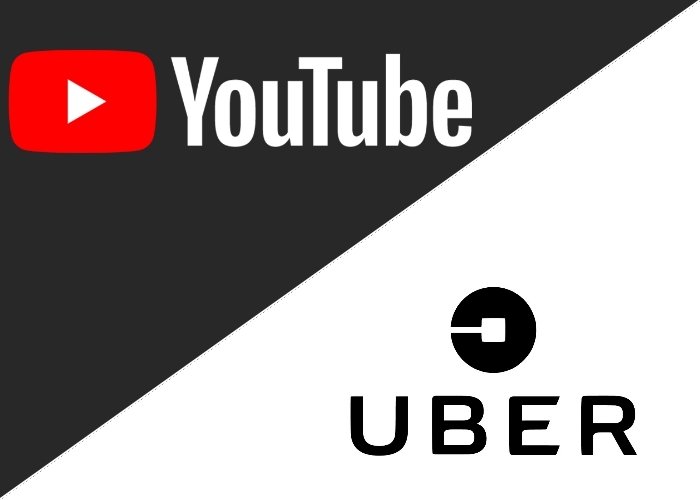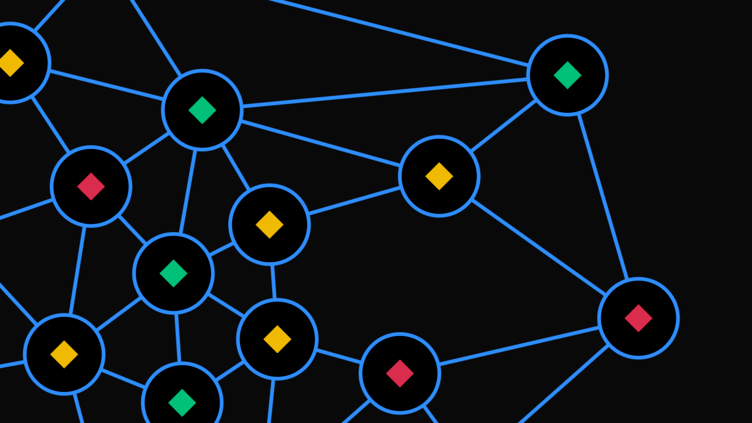There is much being written about the future of the collaborative commons. This is a concept that is more than a century old yet is now starting to gain a great deal of energy behind it. With the development of Web 3.0 over the ensuing years, this is something that will start to resonate with the masses.
What is collaborative commons?
It is best explained by using the Internet as an example. This is probably one of the most recognized common among individuals.
The Internet is not owned by anyone. Its success is due to the efforts of the participants. As a resource, it is shared by all and is free to use. There are no rulers or anyone in control of it. In short, it is a resource that is openly available to all.
Ultimately, ownership is replaced by access.
Of course, there are some drawbacks to what I just wrote. Even though the Internet has all those characteristics, we know the Internet is not the open mecca of information. At every step of the process, from logging on to search to browsing, there are corporations that are in control. They erected themselves as gatekeepers. At the same time, they are also rent seekers.
This created a situation where much that we use is a hybrid situation. It is a commons that is owned by private entities.

Social media is the best example of this. These platforms have are filled with prosumers. Here we see the content creators are also the consumers. YouTube best exemplifies this. The creators generate content that is viewed by the user base. This generates a great deal of wealth, some of which is directed to the developers of the videos. Unfortunately, the bulk of the money goes to the platform owner, Google.
Another facet to this is the fact that the data acquired on the platform, which is produced by all users, is then packaged and sold to advertisers. Here again, the users are the producers yet they do not financially benefit from what is taking place.
This is all starting to change. YouTube is getting a bit of attention for its censoring of certain content on its platform. Here we see the main drawback to this type of system. The community is who produces the data and content yet the single entity is the overlord. All is done only with the permission of Google.
There are a couple other entities that are finding themselves in a bit of trouble. Uber is also a common idea. It took transportation and turned drivers into prosumers. Of course, it owns the platform, for which, it takes a nice cut of the proceeds. It is a centralized entity that is in full control of what takes place.
We see a similar situation with Airbnb regarding lodging.
The shut down of the economy really put a hit on these companies. Since their motive is profit, these dropped like a rock with stay at home orders. This put both companies further into the red. Many are questioning whether they will make it out of this.
If we get to the core of the matter, there is really no reason to have an Uber or Airbnb. The infrastructure they offer can be replaced with a peer-to-peer system. In fact, many are already building out Airbnb alternatives. This is being done by hosts getting together and having their own application created. A move like this not only eliminates the fee placed upon the hosts but also provides then with greater flexibility such as being able to accept lower offers if so inclined.
Blockchain really brought the idea of collaborative commons to the forefront. By coupling with cryptocurrency, the ability to monetize peer-to-peer transactions offered a vastly different scenario as compared to what was available before.

We see the model in action on a blockchain like Hive. Here we can witness how those who create the content are also the ones who benefit from it. Using different applications, these creations can be posts, comments, or videos. Even upvotes have a value and are rewarded to some degree. There is no central entity that is in control of the network enabling those with stake in the network to steer its direction.
Collaborative commons are replacing markets with networks. This might get people defensive at first until they understand what is truly being formed. We are so accustomed to being programmed with our "isms" to defend (or attack) based upon ideology that we do not see the merit in what is forming.
We live in a world that is focused upon ownership. Power is based upon this and all are taught, even indirectly, that we need to seek to own and control as much as we can. Networks operate differently. This is something we saw over the past couple decades which should make the next phase of the transition easier.
Access is the most important criteria. When we consider the services offered out by YouTube, Uber, and Airbnb, we can see this clearly. YouTube gives up open access to information, in video format, on most any topic. Uber provides access to transportation while Airbnb does the same for lodging. Under these scenarios, ownership is not relevant.
Of course, someone owns the assets providing the services. Uber drivers own the cars while Airbnb hosts the homes. As we mentioned, Google owns the YouTube platform which gives it an authoritarian role.
Here again, blockchain is creating a solution to this. With the introduction of the DAO (Decentralized Autonomous Organization), we see how something can be in operation, even physical assets, yet have no owner. Stakeholders are the ones who direct the operation and they are usually the users of the platform.

Probably the first example of a DAO is Bitcoin. Here we see a system that nobody owns. There are many who perform services tied to the running of the network. For this, they are compensated. However, those who are using the network are also the stake holders since, even if for a brief moment, they have Bitcoin. Anyone with Bitcoin can access the network, any time of day, and send a transactions. There is no single entity to turn around and say "sorry you cannot do that".
Eventually, we will see this system spread to areas such as energy and manufacturing. With renewables, a network of energy producing nodes (homes) can be grouped together in a similar fashion. With the use of smart meters, the energy can be sold back and forth to those who need it. This does not require a centralized utility like we see today.
3D printing is going to bring this same concept to manufacturing. Instead of production taking place at a centralized location and then shipped, many will be producing items under their own roofs. This is going to enable them to generate plans that can be digitally shared across the world. Anyone with a printer will be able to download them, often for a fee, and then print the item out.
The networks that are created are not owned by anyone. Instead, it is the access that is important as those who are involved are able to remain tapped into the network. The benefits, financial and otherwise, are shared among those participating in the network and nobody else. Depending upon the type of network, this could be people locally in a geographic region, such as with energy, or from all over the globe.
Nevertheless, the days of everything being run by centrally controlled entities is starting to come to an end. As the idea of collaborative commons and technological capabilities expand, we are going to see this as the main business structure. The next decade will witness this transition so that, by the early 2030s, it is prevalent in most people's lives.
In the meantime, we will see some of the hybrid platforms that we are accustomed to start to lose their power. Their economic model simply will not work for most people going forward.
If you found this article informative, please give an upvote and rehive.

gif by @doze

Posted Using LeoFinance
As I'm always saying - crypto is a middleman-eliminator, horizontal integrator.
Excellent write up and very likely an accurate glimpse into the future of business. Another great example is Upwork. They own and dominate the online work industry. I'd like to see more autonomous communities form by and for content creators. HIVE is a great example of this, especially with surpassinggoogle's work/hire platform. More, more more!!! 😎
The idea of decentralizing most platforms that are presently being used is upon us. It will take time since this transition will not happen overnight.
However, the shift from physical did not happen in a year or two either. It took more than a decade for the music industry to be transformed.
I think we are looking at something similar with this. We are going to see progress made each year until ti suddenly appears to be an overnight process.
Posted Using LeoFinance
I am not that much a technical person but I understood a little from this post, the future is going to be something a lot different than the present. 😀
Yes it is @sabari18.
Heck the coronavirus is assuring us that things will be a lot different going forward.
Posted Using LeoFinance